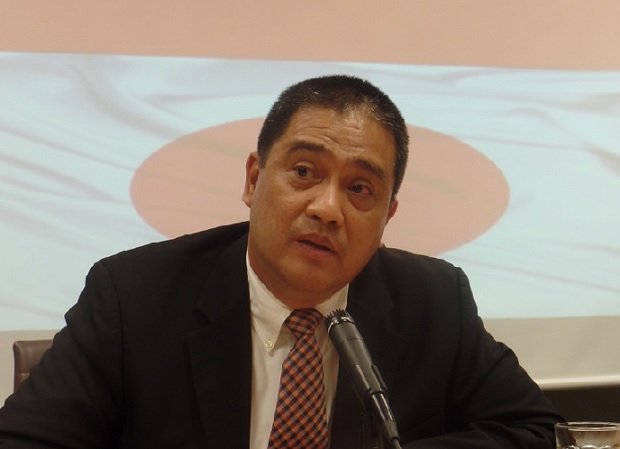At the roundtable forum on Renato de Castro’s paper on “The Role of America’s Alliances in the Philippines’ Balancing Policy on China: From the Aquino to the Duterte Administration” last Friday sponsored by Stratbase ADR Institute, former senator and defense secretary Orlando Mercado related that to counter China’s occupation of Mischief Reef (Panganiban in Filipino and Meiji in Chinese) , 130 nautical miles off Palawan, in 1995 they decided to ground the BRP Sierra Madre in Ayungin Shoal, just 26 nautical miles away.
Knowing that China was also eyeing Scarborough Shoal also known as Panatag and Bajo de Masinloc (Huangyan to the Chinese), they also grounded BRP Benguet not so far away from the protruding rock, 124 nautical miles from Zambales.
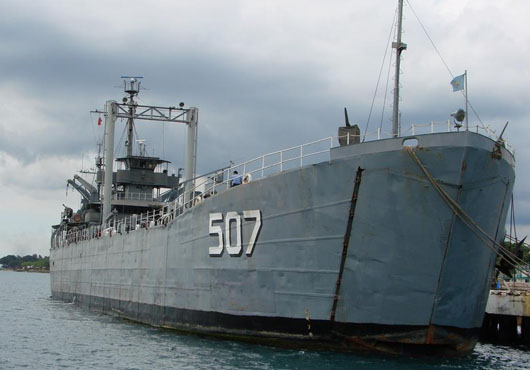
BRP Benguet could have guarded Scarborough Shoal had it not been pulled out.
This was in 1999, during the presidency of Joseph Estrada. Mischief Reef was occupied by China during the presidency of Fidel V. Ramos.
Mercado said he had wanted to ground more LST’s (Landing ship tank) in the disputed part of the Spratlys and asked a Navy officer if they still have some to spare. The officer was concerned that the Chinese might not believe that the grounding was not intentional.
He said he asked the Navy officer, “do you believe the Chinese line that they occupied Mischief Reef just to build fishermen’s shelter
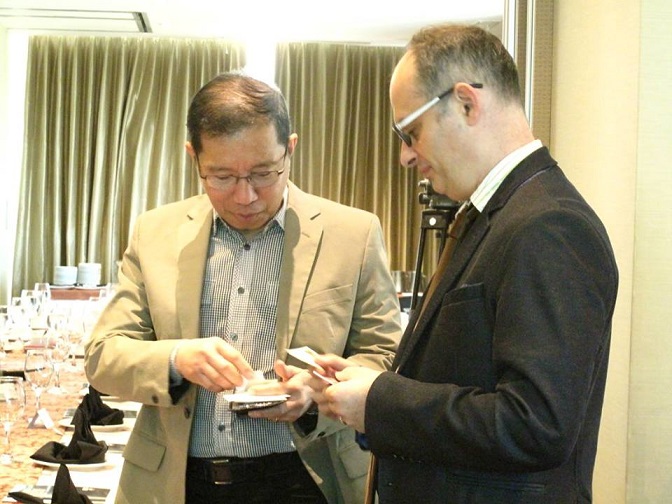
Former Defense Secretary Orlando Mercado exchanging cards with European Union delegation to the Philippine’s Jerome Riviere.
Mercado’s story about grounding LSTs in disputed areas in the South China Sea was to stress his point that in geopolitics, we should “observe, calculate and outwit” using “soft” or “smart” power if one does not have “hard power” like the Philippines.
A lamentable postcript to the Mercado LST story is that BRP Benguet was pulled out from the Scarborough area by Gloria Arroyo who took over Malacañang when Estrada was ousted in 2001. The strategically outcrop is now effectively controlled by China.
De Castro said despite President Duterte’s inclination toward China, he should recognize that the United States will remain a dominant naval power in Asia Pacific.
He noted that “Despite his initial vitriolic against the U.S. and the Philippine-U.S. alliance, President Duterte has not abrogated the alliance. He has also strengthened security partnership with Japan.
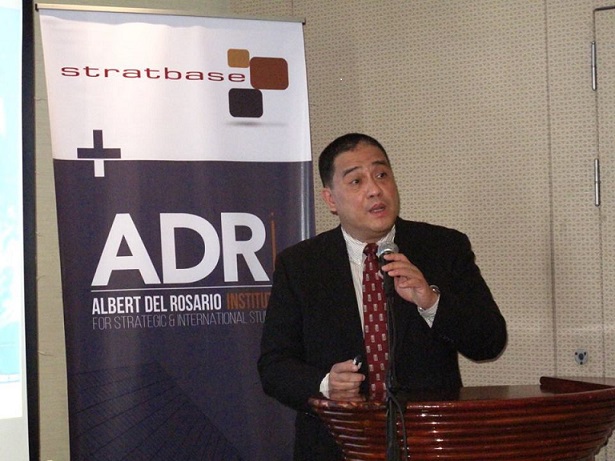
Dr. Renato de Castro presenting his paper, “The Role of America’s Alliances in the Philippines’ Balancing Policy on China: From the Aquino to the Duterte Administration.
Among de Castro’s recommendations include maintaining stable and healthy security relations with the U.S. by implementing the Visiting Forces Agreement of 1997 and the Enhanced Defense Cooperation of 2014.
The Duterte government should also continue pursuing its vibrant strategic partnership with other U.S. bilateral allies namely Japan, South Korea and Australia, he said.
As to China, de Castro said Duterte should “lay the groundwork for a constructive bilateral negotiation with China that will be guided by the primacy of the rule of law and close consultation with the Philippines’ ally and security partners.”
Defense analyst Jose Custodio said there’s so much confusion in Duterte’s pronouncements being contradicted by his secretaries.
Almost a year into the Duterte administration, he still has not seen polices defined.
“I’m not exactly optimistic,” Custodio said.
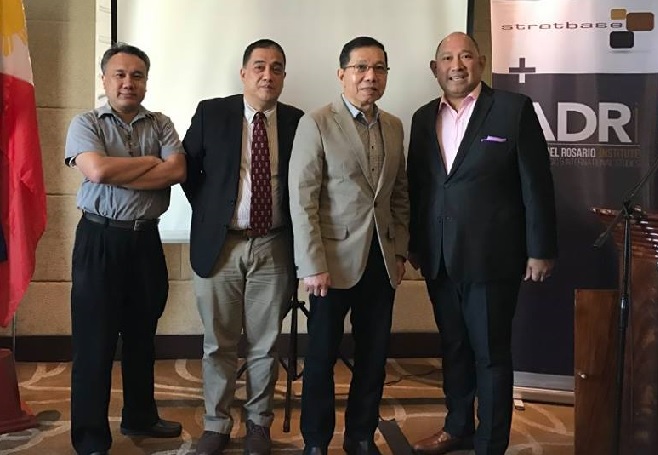
From left to right: Defense Analyst and Military Historian Jose Custodio, Stratbase ADRi Trustee Dr. Renato de Castro, EROPA Secretary-General and former DND Secretary Orlando Mercado, and Stratbase ADRi Pres. Dindo Manhit
